It’s evening time. You’ve arrived home from work, ate your dinner, and are finally unwinding and getting ready to watch your television. If you work in the sports media business, that likely means watching some form of sports programming.
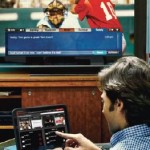 You absorb the content, and before you know it, you’re reaching for your phone, iPad, or laptop, and logging on to one of your social media accounts to see what others are saying about the program you’re watching.
You absorb the content, and before you know it, you’re reaching for your phone, iPad, or laptop, and logging on to one of your social media accounts to see what others are saying about the program you’re watching.
As you start reading the comments, they get your juices flowing. Soon you have the itch to type a response, and engage in the conversation. After all, you get paid to talk, and interact with people on your show each day, and you have bosses, and the entire media industry telling you how vital it is to connect with the audience outside of your show to build deeper fan loyalty.
And then it happens…..you press send, and offer an opinion that gets the whole world talking, and not for the right reason.
The responses to your opinion start coming in rapidly. Your audience begins sharing and retweeting your commentary, and soon the media industry, one which you make your living in, is now highlighting your opinion, and seeking your removal and/or an apology.
You start to panic, and think “maybe I can delete the comment and this will all go away“. Except, it’s been saved at this point by numerous outlets, and you recognize that it’s going to spread like a virus no matter what you do.
Then you ponder “what if I just apologize, and promise not to do it again“? That sounds good in theory, but the damage has already been done, and the dogs are lined up outside the door, and barking, and not going away until they taste blood.
 As you contemplate the chaos you’re involved in, you decide to reach out to your boss, and let them know what’s transpired, so they know the situation, and understand your role in it. Whether you get along great or terribly with this individual is irrelevant, because you know the conversation is necessary.
As you contemplate the chaos you’re involved in, you decide to reach out to your boss, and let them know what’s transpired, so they know the situation, and understand your role in it. Whether you get along great or terribly with this individual is irrelevant, because you know the conversation is necessary.
Together you discuss the next steps for handling the storm, and when you go to sleep that night, you’re hopeful to wake up the next day and have it all be just a dream. Except it isn’t, and the nightmare isn’t close to being over.
Then the phone call comes in. It’s likely your Program Director, or it might even be your General Manager, or CEO, asking for more details on what took place.
You offer your thoughts on the situation, and explain how you were simply taking part in a conversation with the audience outside of the show, and offered an opinion that wasn’t well received. But you do this all the time on your show, so this shouldn’t be any different right?
Your boss listens to you, probably takes some notes, and tells you they’ll be in touch afterwards to discuss what to do next.
At this point you’re stressed out, blaming yourself (or the audience who outed you) for putting your commentary on social media, and you’re walking on egg shells waiting to hear how the company wants to proceed.
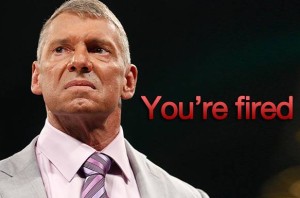 And then the phone call comes…..you’ve been suspended or fired.
And then the phone call comes…..you’ve been suspended or fired.
Instantly you’re asking your employers to reconsider. You’re pissed off at the audience for making a big deal out of what you thought was an innocent comment. You’re feeling embarrassed and uncomfortable about your future because you know this blemish is now going to hang over your head like a dark black cloud.
And as I sit here laying out this scenario for you, I have one simple question I want you to answer – did it make any sense at all to participate on social media?
Some people will immediately say “well if you weren’t stupid and didn’t say those things, you wouldn’t be in this predicament“. That’s true. I often read some personalities social media responses and question their line of judgment because I know that they’re on the verge of unflattering attention for a pointless reason.
I also recognize though that some of the most opinionated people in our business, performers who by the way drive ratings, and command big advertising endorsement rates (and offer similar commentaries on-air that they’re now being attacked for using on social media), don’t always handle things properly. I don’t want to excuse personal responsibility because it should factor into the equation.
But let’s also recognize that people are human, and they do have flaws, and make mistakes.
Here’s a cold reality. In every industry, there are people who’s views, character traits, and decisions, will make you uneasy. You see them as the lowest form of scum, while others see them in a different light.
When it comes to social circles, we gravitate towards those we like, but still we focus our additional energies on people we don’t identify with. As petty as it may be, we spend a lot of time and negative energy analyzing what other people say and do.
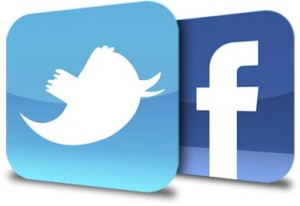 That today has become one of the most powerful seductions for Twitter and Facebook. You wake up, read your timeline, and you interact with those you like, and then proceed to talk or complain about a couple of others who posted something that you don’t agree with.
That today has become one of the most powerful seductions for Twitter and Facebook. You wake up, read your timeline, and you interact with those you like, and then proceed to talk or complain about a couple of others who posted something that you don’t agree with.
Is it really important? No. But in today’s world, we’re consumed with everyone’s opinion, and we feel an immediate need to dive into everyone else’s conversation.
That doesn’t make social media bad. Instead it calls into question our own abilities to operate with a filter. We want to be ourselves, and speak freely without consequence, and when you’re communicating with people you have established relationships with, that may be acceptable. When you’re presenting your views though to those you share no personal history with, that’s a different ballgame.
It’s our own personal responsibility to assess whether it makes sense to respond, or walk away from certain conversations. Unfortunately, most of us can’t help to stop and look at the car crash, rather than continue driving.
Personally, I enjoy social media, and many of the benefits it provides. But I’m also not on the air, and I don’t command the same attention that an on-air personality does. If I were working in that position, and had every one of my assessments being scrutinized, as much as I love being social, and connecting with people, I’d have to think twice about my level of activity, and what I hoped to gain by being accessible on it.
I know that may sound crazy since every media company today preaches the importance of social media, and why it’s necessary to be active, but let me ask you this – how much money have you or your brand made off of Twitter? How about Facebook?
 If your best personalities can’t turn off their emotions (which by the way, you love and push for more of when they’re on the air), and have a rational conversation on social media without torching their own career and your brand in the process, then is it really worth it to be on there in the first place?
If your best personalities can’t turn off their emotions (which by the way, you love and push for more of when they’re on the air), and have a rational conversation on social media without torching their own career and your brand in the process, then is it really worth it to be on there in the first place?
These are highly emotional, and opinionated people, and we send them into the lion’s den, but ask them to play nice. Each day they log on to their accounts, and share their personal beliefs, and invite the world in, while enduring public criticisms, and personal attacks. We then expect them not to be brash or irrational with their responses when faced with negativity. While we may want all talent to flip a switch, and avoid confrontation over meaningless drama, not everyone marches to the same beat.
I want to understand this, and approach the conversation strictly from a business point of view for a second, because remember, this is a business, and everything we do comes back to the almighty dollar.
If you make little to no money by being on Twitter, and the same holds true for your presence on Facebook, yet you stand to lose your livelihood if you make a mistake on one of these platforms, then can someone please tell me why it makes any sense at all to be candid, engaged, and heavily involved in these social spaces?
The risk certainly seems to outweigh the reward.
I’ve heard certain personalities who choose not to participate in social media, say that they believe that by sharing their lives and opinions outside their show, it takes away from the mystery of their programs, and could potentially cost them additional audience. While I don’t necessarily agree with all of that (I can make a case that by promoting yourself, and your show on social media it can lead to an increase in tune-ins), I do understand their point, and concern.
 A talent makes their money on the air. Their ratings determine whether or not they get to continue doing it. If speaking your mind in other locations takes away from the allure of what you’ll offer on your show, then I can understand why there’d be hesitation to participate. Some managers may frown upon that, but this is why you can’t treat every personality the same.
A talent makes their money on the air. Their ratings determine whether or not they get to continue doing it. If speaking your mind in other locations takes away from the allure of what you’ll offer on your show, then I can understand why there’d be hesitation to participate. Some managers may frown upon that, but this is why you can’t treat every personality the same.
What I don’t understand though is why we all feel the need to be in these spaces, and why we continue to think that our comments on social media aren’t seen by all, and potentially damaging. I’ve sat back and watched some personalities swear, ridicule and insult listeners, and trash other companies, yet they wouldn’t do most of that on their own airwaves. They’re not being paid by these social media outlets to be outspoken, but still they feel the need to express themselves more candidly here, than they often do on their own radio stations.
Here’s a newsflash for every on-air personality, and public figure, Twitter and Facebook are no different than your radio or television station. When you type a comment, and press send, your opinion enters the social media universe, which is equal to grabbing the microphone, and saying something offensive that leads to the FCC or your own company taking action against you. You may think that it’s this fun little platform where you can be yourself and have colorful conversations, but it’s not.
I started thinking about this subject based on the story that generated national attention yesterday. Mike Bell of 92.9 The Game in Atlanta made some unflattering jokes and comments about ESPN’s Jessica Mendoza, and his poor judgment on social media led to him being suspended by the radio station.
I personally think Mike made a terrible error, and he said some things that were insensitive and stupid. The station had every right to suspend him, and I applaud them for taking action.
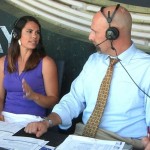 I also think his analysis of Jessica Mendoza was off base. As a Yankees fan, I watched that game, and was curious to see how she’d perform, and I came away from that broadcast extremely impressed. She was sharp, well spoken, easy to follow, made excellent points and counterpoints, and proved that she belonged on that stage.
I also think his analysis of Jessica Mendoza was off base. As a Yankees fan, I watched that game, and was curious to see how she’d perform, and I came away from that broadcast extremely impressed. She was sharp, well spoken, easy to follow, made excellent points and counterpoints, and proved that she belonged on that stage.
Yes her involvement as an analyst on a baseball broadcast is foreign territory, and as we’ve seen so many times, change isn’t accepted quickly. The immediate response from most people is to complain, and reject any new idea until it’s proven to be socially acceptable.
What I learned from this story, is that Jessica has a lot of talent, and class, and she lets her work speak for her. If you browse her Twitter account, you’ll find most of her tweets promote something she’s involved in, or she’s retweeting something positive. That’s a smart approach. By steering clear of controversial discussions, it keeps her in control, and unlikely to be in a position to have to explain herself to her bosses, or even worse, the entire country.
On the other hand, there are so many others that can’t hit the delete button, and have put themselves in hot water by using poor judgment on social media.
In the past week alone, Mike Bell was suspended, a social media staffer for the Texas Rangers was fired after posting a remark about Texas Head Football Coach Charlie Strong on the team’s Twitter account, and one of the world’s most powerful media moguls Rupert Murdoch was under the microscope for a tweet where he said “Ben and Candy Carson terrific. What about a real black President who can properly address the racial divide? And much else.”
If you’re keeping score, that’s one media person suspended, another fired, and another publicly embarrassed and likely to face some advertiser backlash, all because they used poor judgment on social media platforms.
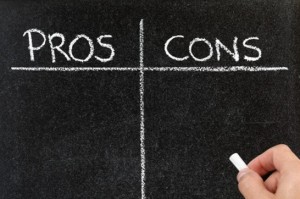 So I ask these questions again – why are you on there, and is it really worth it?
So I ask these questions again – why are you on there, and is it really worth it?
If the risk means losing your career, or being publicly embarrassed, and there’s no money or career advancement coming your way from being active on it, then why do it?
What brings this full circle for me is that we focused a lot of attention this week on the Mike Bell-Jessica Mendoza controversy, but it never should have even been a topic of conversation in the first place. If Curt Schilling, hadn’t taken to social media, and performed like Mike Bell, Jessica Mendoza wouldn’t have been in that position to draw a reaction.
Which goes to show that when you follow Mendoza’s example, and use social media in small doses, and for the right reasons, you avoid dangerous situations, make a lot of money, and professionally benefit. Bell and Schilling should be taking notice of that, not just her performance in a baseball booth! Although that too may cause future problems for Curt.

Jason Barrett is the Founder and CEO of Barrett Media. The company launched in September 2015 and has provided consulting services to America’s top audio and video brands, while simultaneously covering the media industry at BarrettMedia.com, becoming a daily destination for media professionals. Prior to Barrett Media, Jason built and programmed 95.7 The Game in San Francisco, and 101 ESPN in St. Louis. He was also the first sports programmer for SportsTalk 950 in Philadelphia, which later became 97.5 The Fanatic. Barrett also led 590 The Fan KFNS in St. Louis, and ESPN 1340/1390 in Poughkeepsie, NY, and worked on-air and behind the scenes at 101.5 WPDH, WTBQ 1110AM, and WPYX 106.5. He also spent two years at ESPN Radio in Bristol, CT producing ‘The Dan Patrick Show’ and ‘GameNight’. JB can be reached on Twitter @SportsRadioPD or by email at Jason@BarrettMedia.com.



